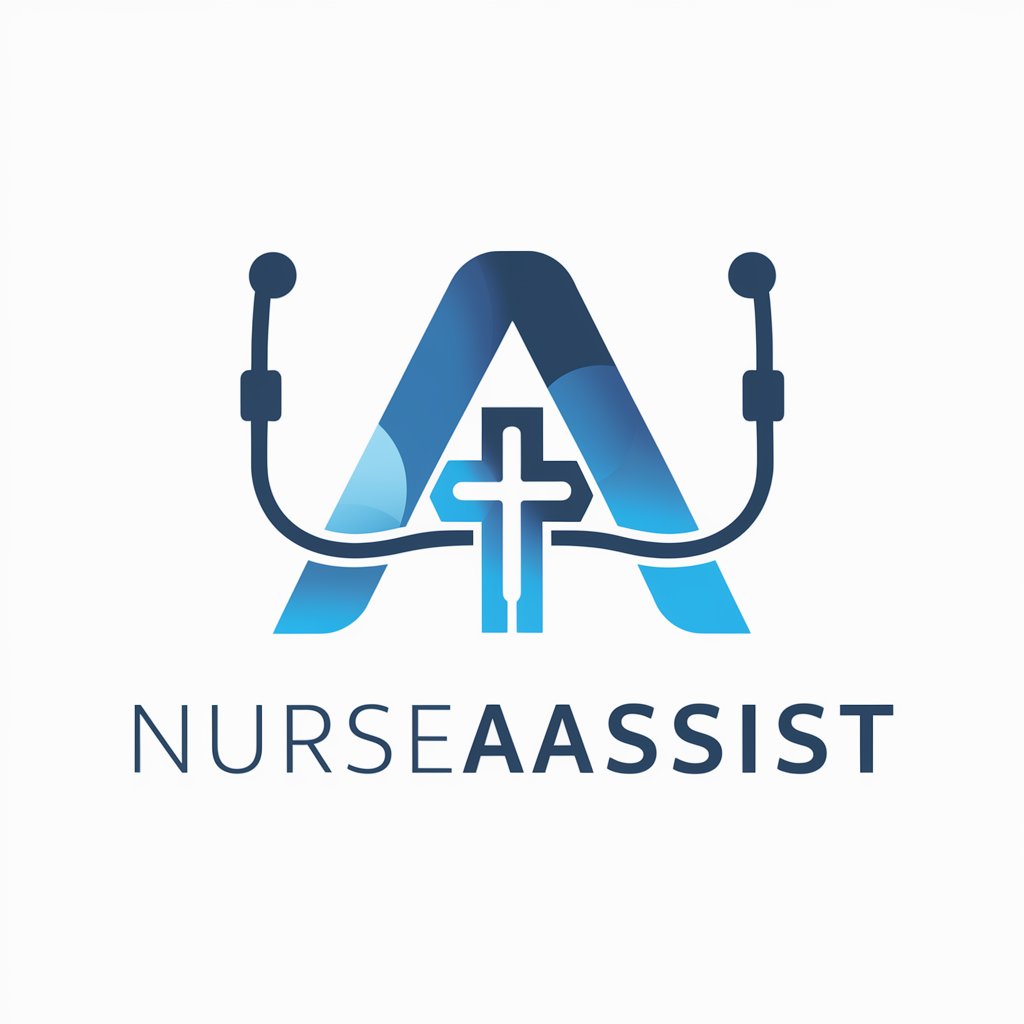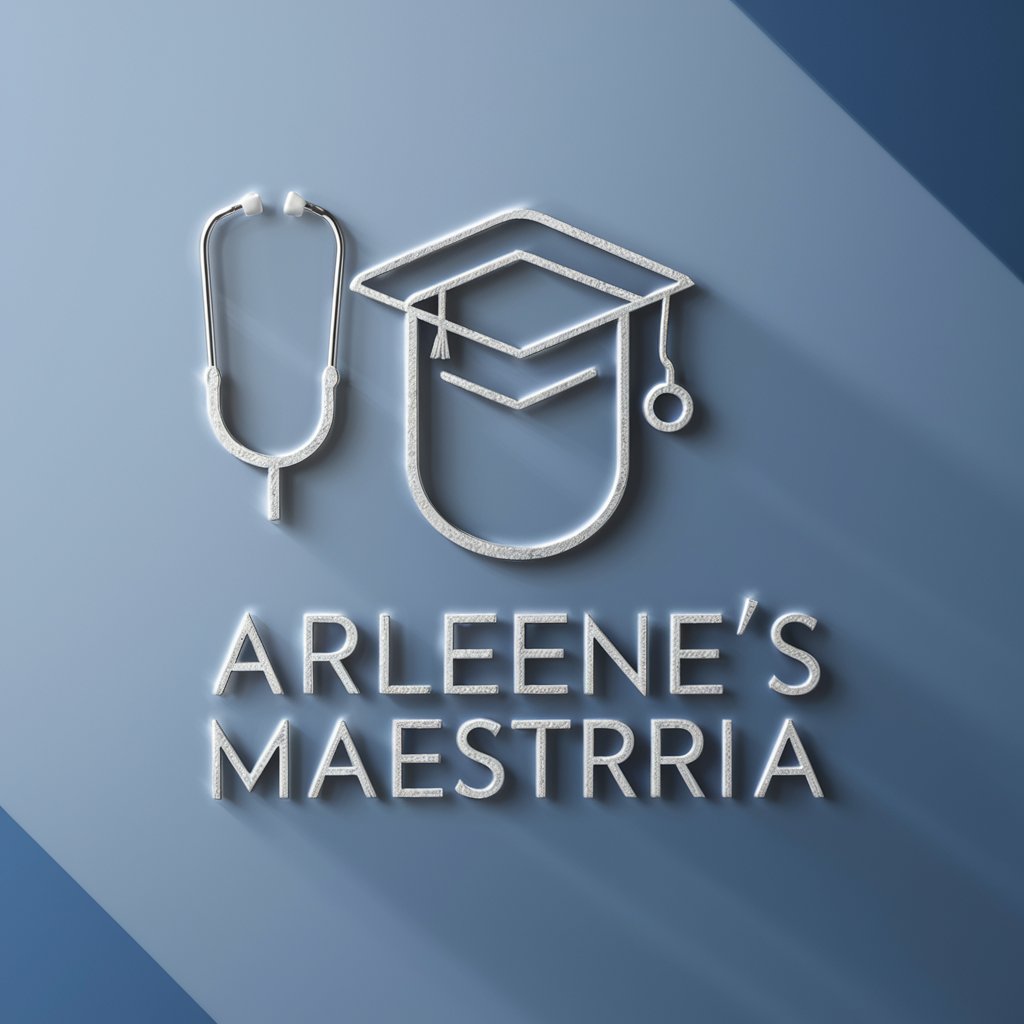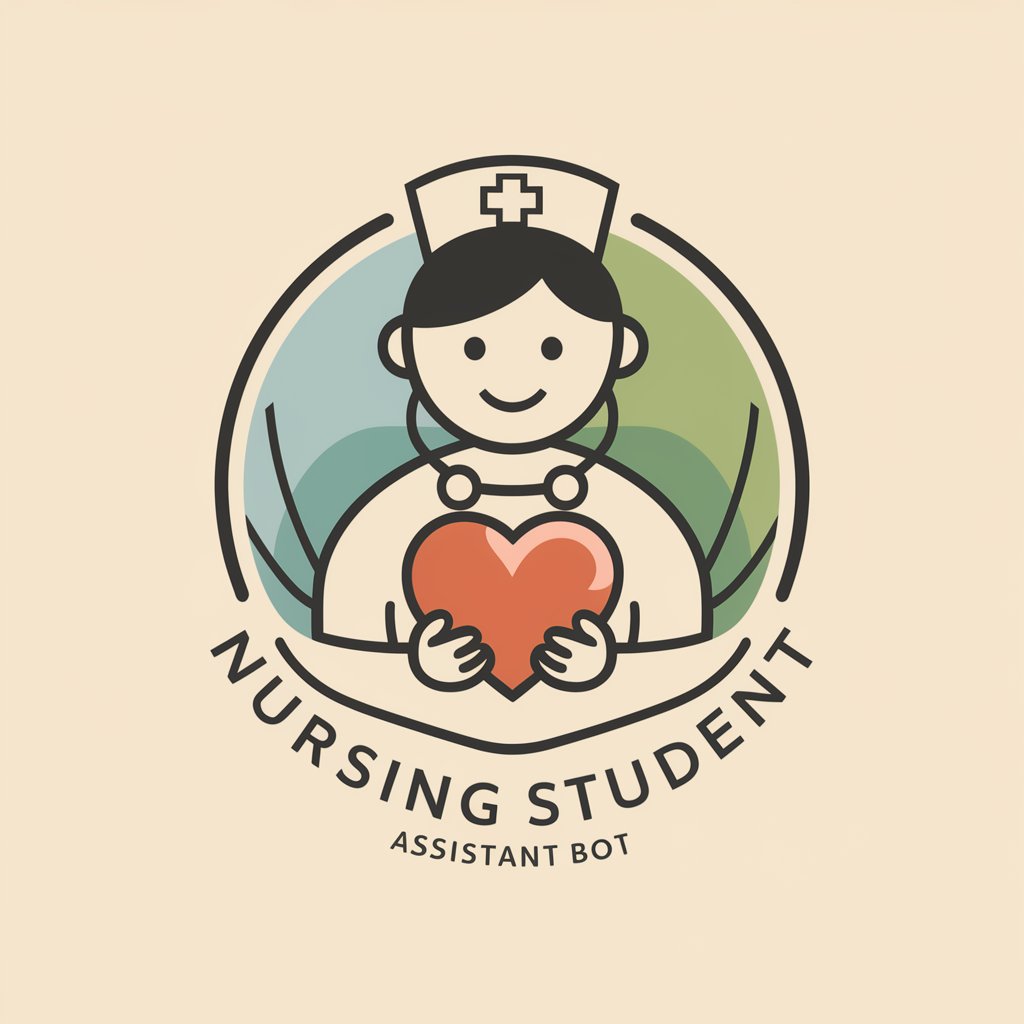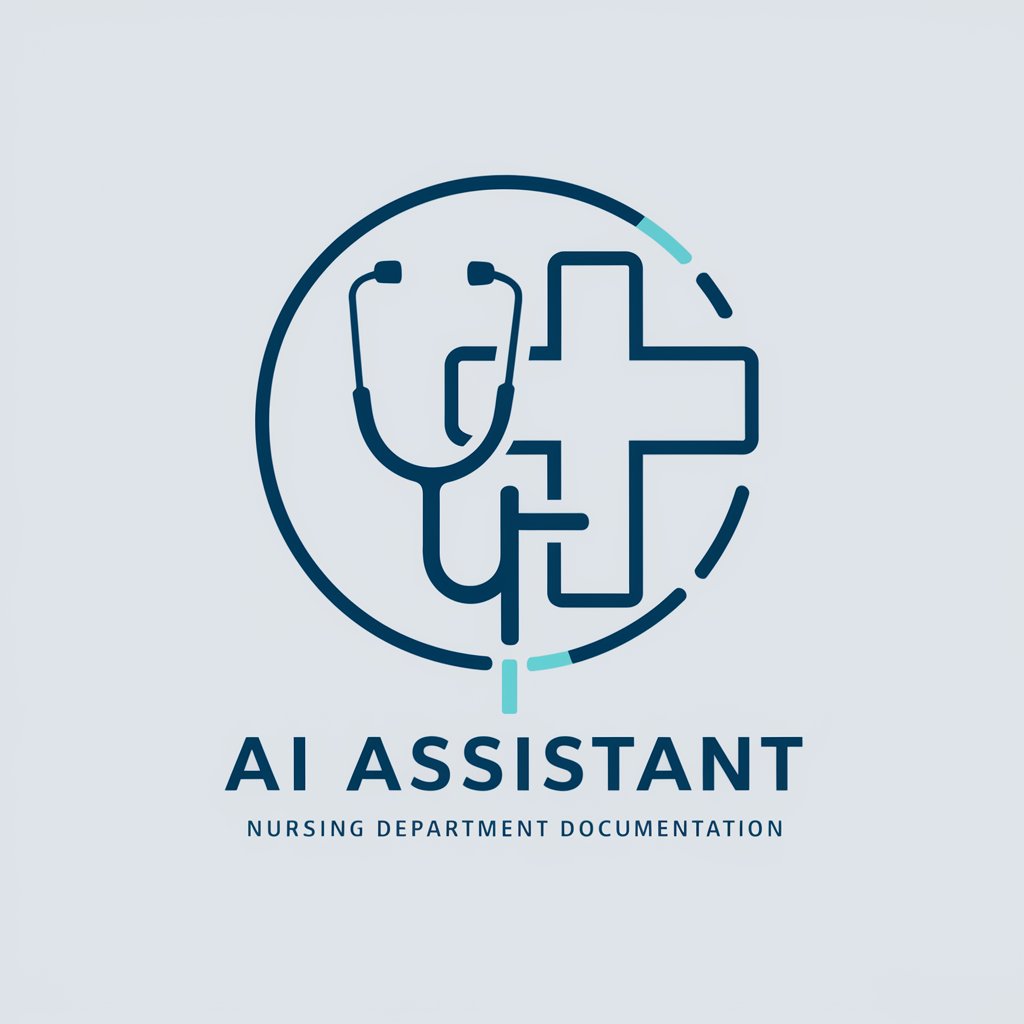
Nursing Assistant - Nursing Assistant Insights
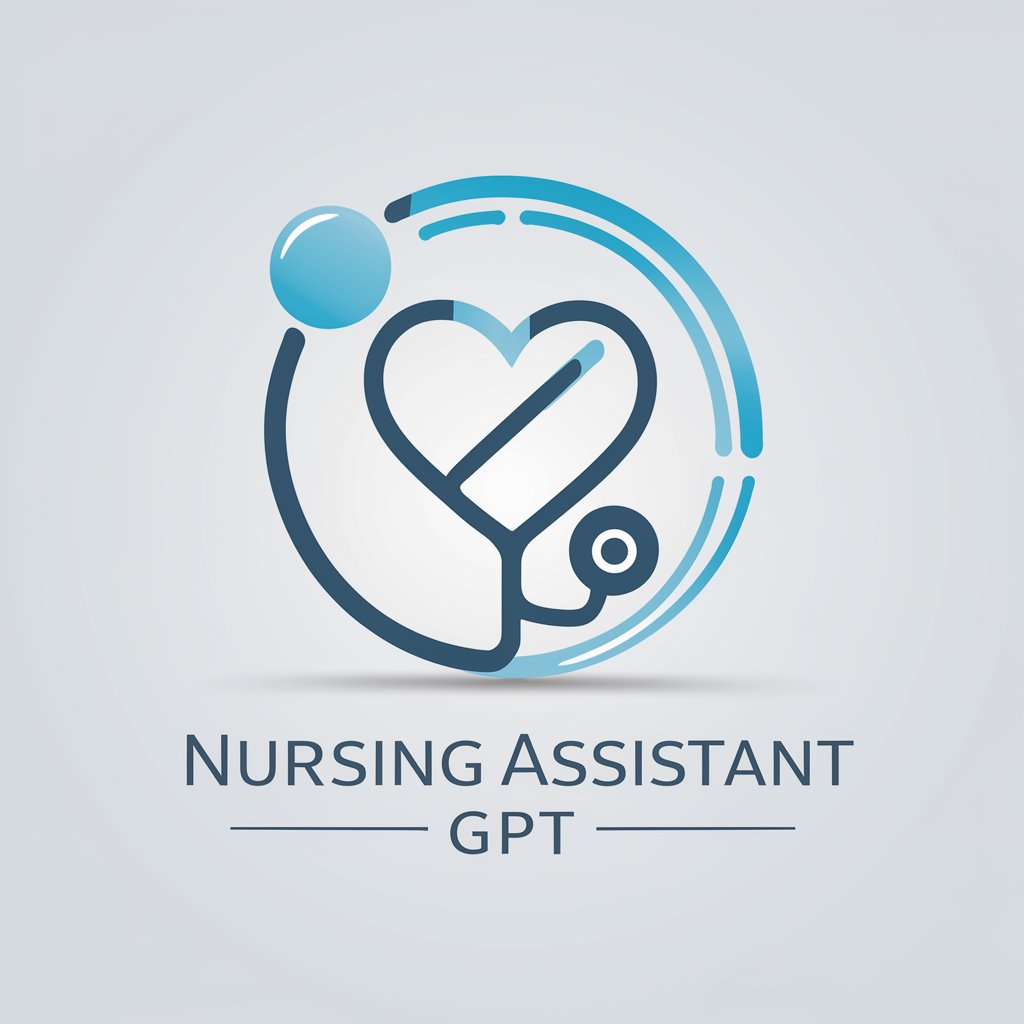
Welcome! How can I assist you with nursing care information today?
Empowering care with AI-driven guidance
Can you explain the daily responsibilities of a nursing assistant?
What skills are essential for success as a nursing assistant?
How do nursing assistants support patient care in healthcare settings?
What are some common challenges faced by nursing assistants?
Get Embed Code
Introduction to Nursing Assistant
The Nursing Assistant GPT is a specialized virtual assistant designed to provide information and support related to the nursing assistant profession. Its primary function is to offer insights into the day-to-day responsibilities, skills required, and challenges faced by nursing assistants in healthcare settings. This GPT is programmed to share knowledge on patient care techniques, communication skills, ethical considerations, and medical support tasks. For example, it can describe the proper procedure for helping patients with mobility issues, including the use of transfer belts and the importance of maintaining proper body mechanics to prevent injury. It also provides guidance on how to effectively communicate with patients who have varying degrees of cognitive abilities, ensuring that care is both respectful and empathetic. Powered by ChatGPT-4o。

Main Functions of Nursing Assistant
Educational Support
Example
Explaining the steps involved in basic patient care procedures, such as bathing, dressing, and feeding patients who are unable to perform these tasks themselves.
Scenario
A nursing student is preparing for their clinical exams and needs to understand the correct techniques for bed baths to ensure patient comfort and hygiene.
Ethical Guidance
Example
Providing information on how to handle sensitive patient information, ensuring confidentiality and privacy are maintained in line with healthcare regulations.
Scenario
A new nursing assistant is unsure about what information can be shared with a patient's family members and seeks guidance on how to navigate these conversations while respecting patient privacy.
Skill Development
Example
Offering tips on improving communication skills with patients and healthcare team members, including active listening and empathy.
Scenario
A nursing assistant struggles with effectively communicating with a patient who has hearing loss and seeks strategies to improve their interaction and ensure the patient feels understood and cared for.
Professional Challenges
Example
Discussing common challenges faced by nursing assistants, such as dealing with the emotional and physical demands of the job, and offering coping strategies.
Scenario
A nursing assistant feels overwhelmed by the emotional stress of caring for terminally ill patients and looks for advice on how to manage these feelings while providing compassionate care.
Ideal Users of Nursing Assistant Services
Nursing Students
Students pursuing a career in nursing who require additional learning resources and practical advice to supplement their formal education. They benefit from the detailed procedural guidance and real-world scenarios provided, helping them prepare for clinical exams and future roles in healthcare.
New Nursing Assistants
Individuals who have recently entered the nursing assistant profession and seek advice on best practices, skill development, and how to navigate the ethical and professional challenges of their new role. They find value in the guidance offered on patient care, communication, and coping with job stress.
Healthcare Professionals
Experienced nurses, healthcare workers, and educators who are looking for resources to support their teams, students, or themselves in providing high-quality patient care. They appreciate insights into the latest best practices and techniques in patient support and the ethical considerations unique to nursing assistance.

How to Use Nursing Assistant
1
Start with a free trial by visiting yeschat.ai, where you can access Nursing Assistant without the need for a ChatGPT Plus subscription or creating an account.
2
Identify your specific need or question related to nursing assistance, whether it's about patient care, medical support tasks, or ethical considerations in nursing.
3
Engage with the Nursing Assistant by typing your question or describing your scenario in detail to get the most accurate and helpful response.
4
Utilize the feedback or guidance provided by Nursing Assistant to enhance your understanding, skills, or decision-making in nursing assistance.
5
For the best experience, be specific with your queries and provide context when possible. This helps the Nursing Assistant to deliver more personalized and relevant information.
Try other advanced and practical GPTs
Expert SEO Coinhouse
Empowering SEO with AI Precision

Denim
Elevate Your Denim Game with AI

Chemistry Teacher
Empowering students with AI-driven chemistry education

traducteur
Powering communication across languages with AI

DE Interní prolinkování
Automate Your Internal Linking with AI

BibleChat Design Guru
Merging design with faith through AI

Trợ lý T
Empowering Research with AI

Pennsylvania
Unlocking Pennsylvania's Secrets with AI

Gun
Navigating firearm legality with AI

CivilEngineer
Empowering Engineering Decisions with AI

Meta Ads Copy Crafter
Craft Winning Ads with AI Power

Armando Content
From Spanish Ideas to Dalio's English
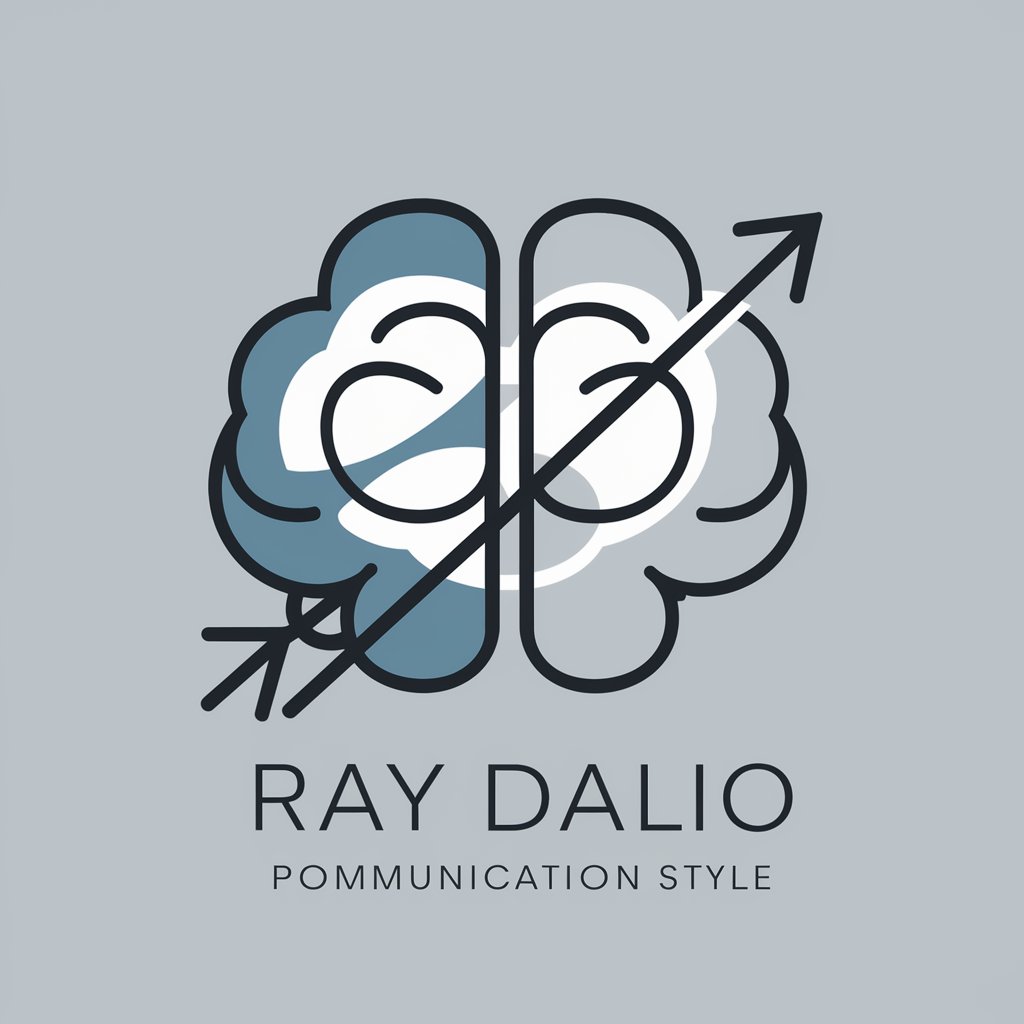
Detailed Q&A About Nursing Assistant
What kind of support can Nursing Assistant provide to nursing students?
Nursing Assistant offers educational support by providing information on nursing procedures, patient care techniques, and ethical practices. It can guide students through study materials, help with exam preparation, and offer insights into practical skills development.
Can Nursing Assistant help with patient care plans?
Yes, it can offer guidance on creating patient care plans by suggesting considerations for patient needs, potential interventions, and monitoring strategies, all while emphasizing the importance of personalized, patient-centered care.
How does Nursing Assistant handle questions about medical advice?
While Nursing Assistant provides general information on nursing practices and patient care, it does not give direct medical advice, diagnoses, or treatment recommendations. It encourages users to consult healthcare professionals for such inquiries.
Is Nursing Assistant useful for experienced nurses?
Absolutely, experienced nurses can use Nursing Assistant as a refresher tool, for insights into new care techniques or healthcare regulations, and for support with patient education materials.
How can Nursing Assistant improve my communication skills with patients?
Nursing Assistant can offer tips on effective communication strategies, empathy, and patient engagement, which are crucial for building trust and understanding between nurses and patients.
